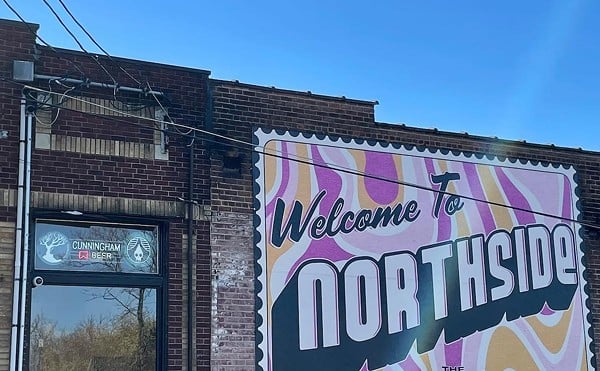|
Though the year is still young, Josh Ritter's new release, The Animal Years, is a clear contender for one of the best Americana records of 2006.
With this record, Ritter stretches his artistic range and develops a more expansive vision through his cinematic songwriting and his use of a first-rate band. If you're at all familiar with his earlier indie work, such as The Golden Age of Radio or Hello Starling, you hear a young, talented singer/songwriter searching for his voice through hushed acoustic reveries, dusk-flecked hymns and the occasional Pop outburst.
For The Animal Years, his first effort on a more major league label, V2, he sketches similar song shapes but transforms them onto a more vital, sprawling canvas.
"I'm so proud of this record, it's something I needed to do. It felt more important to me than to my career, if you know what I mean," Ritter says.
Ritter hails from Moscow, Idaho, and like the best writers in song or prose, he uses his native locale to ground his work with a strong sense of place. Though this western, small town turf is literally Napoleon Dynamite territory, Josh reflects both the earthy grain of the Great Northwest as well as our country's recent crises through a much wider lens.
In the poignant opener, "Girl in the War," he imagines viewing the Iraq War through the eyes of Saints Peter and Paul, the apostles. His stirring lyricism is rife with biblical, historical and literary allusions.
"I've got a girl in the war, Paul, her eyes are like champagne/They sparkle, bubble over and in the morning all you've got is rain."
This visceral, metaphor-rich writing can't help but show the influence of Dylan, one of Ritter's early role models and touchstones. In fact, hearing Dylan and Johnny Cash's duet of "Girl from the North Country" triggered him to pick up a guitar for the first time.
Like his early inspiration, Ritter doesn't want to be typecast. "I don't want the Folk singer label," he says. "It's important to me to write more than love songs. I want to write about the world around me, otherwise you can get stopped up as a writer."
His band goes far in helping him escape that label. Most of the songs still use lean, supple instrumentation, ranging from the spare, acoustic "Idaho" to the more rockin' "Lillian, Egypt."
He chose Brian Deck to produce the record. "I liked his work on a Modest Mouse record," says Ritter. "It sounded like nothing else out there."
They recorded the entire project at Bear Creek, a rustic recording studio fittingly located in a barn outside of Seattle.
Ritter's love of language has been obvious from the start. With his tender voice and delicious lines like "I'm looking for some peace but it's so hard to find/With Calamity Janes, the Steamboat Casanovas, and Darling Clementines," from Hello Starling, you get the sense of a wide, open America, its frontier history and how our country is still shaped by its mythical past.
"I love Mark Twain, and his position on America was unimpeachable," he says. "He cared about it and people knew that, so they could take the critical with the good."
Steamboats, vaudevillian characters and wolves color his picaresque tales. Ritter's evocative imagery motors many of his songs, providing the hook that involves us in his music. He even flavors casual conversations with this kind of description.
"I wanted 'Monster Ballads' to have that open feel, and Sam Kassirer's Hammond organ echoes that riverboat sound for the song," he says.
Growing up in the rural West, Josh was influenced by the natural world of mountains, animals and pine forests. It impacted him so much that he recently bought his first house near his childhood home in Idaho. "I love it here and it gives me a place to get back home to," he says. "I'm enjoying my last four days here before I start touring again."
Reflecting on The Animal Years, Ritter admits, "I don't like to write editorial songs. I see myself more as a wartime photographer. I'm not telling people how to see something; I'm just putting it out there. There's a temptation these days to make music with captions, instead of letting people interpret however they will."
He proves this with the nine-minute elegy, "Thin Blue Flame," in which he imagines looking at the earth below from heaven's perspective, and registering all the troubles he sees. More than anything else, it recalls Dylan's "Hard Rain," with its apocalyptic bent.
But Ritter says, "Dylan was writing about the Cuban Missile Crisis. We've got the war now, but I didn't want my song to be quite so 'doom and gloom' oriented, at least at the end."
JOSH RITTER performs with Hem Sunday at the Southgate House.





